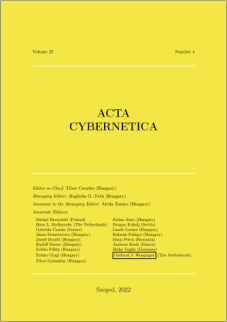Report on the Differential Testing of Static Analyzers
DOI:
https://doi.org/10.14232/actacyb.282831Keywords:
static analysis, symbolic execution, Clang, testingAbstract
Program faults, best known as bugs, are practically unavoidable in today's ever growing software systems. One increasingly popular way of eliminating them, besides tests, dynamic analysis, and fuzzing, is using static analysis based bug-finding tools. Such tools are capable of finding surprisingly sophisticated bugs automatically by inspecting the source code. Their analysis is usually both unsound and incomplete, but still very useful in practice, as they can find non-trivial problems in a reasonable time (e.g. within hours, for an industrial project) without human intervention.
Because the problems that static analyzers try to solve are hard, usually intractable, they use various approximations that need to be fine-tuned in order to grant a good user experience (i.e. as many interesting bugs with as few distracting false alarms as possible). For each newly introduced heuristic, this normally happens by performing differential testing of the analyzer on a lot of widely used open source software projects that are known to use related language constructs extensively. In practice, this process is ad hoc, error-prone, poorly reproducible and its results are hard to share.
We present a set of tools that aim to support the work of static analyzer developers by making differential testing easier. Our framework includes tools for automatic test suite selection, automated differential experiments, coverage information of increased granularity, statistics collection, metric calculations, and visualizations, all resulting in a convenient, shareable HTML report.







